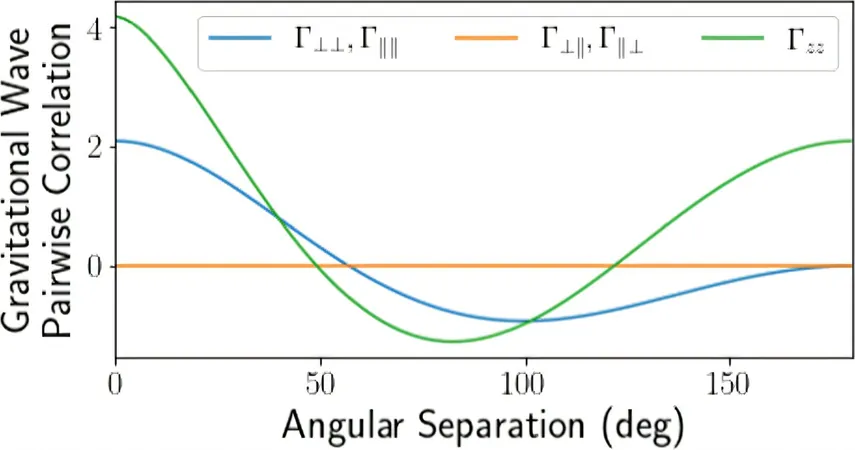
Unlocking Memory: New Study Reveals Shocking Link Between Vitamin K and Cognitive Decline
2025-04-20
Author: Wei Ling
Could Low Vitamin K Be the Culprit Behind Memory Loss?
A groundbreaking new study has revealed that insufficient levels of vitamin K may significantly impact memory and learning, raising concerns about age-related cognitive decline. Researchers delved into the effects of low vitamin K using middle-aged mice, setting the stage for potential insights into human brain health.
The Experiment: Mice Undergo Cognitive Tests on Varying Diets
In the study, male and female mice were split into two groups: one group followed a low vitamin K diet, while the other enjoyed a regular diet for six months. Researchers employed various behavioral tests to gauge cognitive functions, focusing on spatial learning and recognition memory.
David C. Hess, MD, an expert from the Medical College of Georgia, noted one effective test: "The novel object recognition test reveals a lot about cognition, as a smart mouse will eagerly explore a new object it hasn't encountered before." Another crucial test involved the Morris water maze, assessing the mice's ability to locate a hidden platform.
Shocking Results: Low Vitamin K Equals Dismal Outcomes
The results were striking. Mice on the low vitamin K diet exhibited significant cognitive setbacks. Male mice, in particular, faced a lower survival rate and reduced weight gain compared to their female counterparts, who showed fewer adverse effects.
Moreover, those deprived of vitamin K displayed lesser amounts of Menaquinone-4 (MK4), the predominant form of vitamin K in the brain. This deficiency was mirrored in the liver and kidneys, indicating systemic issues.
Cognitive Tests Reveal Major Deficits
During the novel object recognition test, mice lacking vitamin K explored the new object far less than those on a regular diet, hinting at severe memory issues. Similarly, in the Morris water maze, these mice struggled more than their well-nourished counterparts to find the hidden platform.
Neurogenesis and Neuroinflammation: A Hidden Connection?
Diving deeper, researchers observed marked differences in the hippocampus—a key brain area tied to memory. Mice with low vitamin K had reduced neurogenesis, the process of creating new neurons. Given that the hippocampus is crucial for recent memory, these findings suggest a pivotal role for vitamin K.
Additionally, changes in microglial cells, which hinted at increased neuroinflammation, raised alarms. This suggests that low vitamin K might trigger neuroinflammation, which could further compromise cognitive health.
Potential Protective Effects of Vitamin K
The authors propose that vitamin K may shield hippocampal neurogenesis, potentially combating inflammation and oxidative stress. This reveals a dual role for vitamin K in supporting brain health.
Implications and Future Research
While the study sheds light on vitamin K's critical role in memory and cognition, it's crucial to note its limitations. The results, derived from mouse models, may not fully translate to human implications. Furthermore, the research faced challenges, including a reduced number of male mice due to higher mortality rates.
More studies are needed to elucidate how vitamin K and certain metabolic processes, like those involving sphingolipids, relate to brain health and cognitive function.
Boost Your Vitamin K Intake!
For those looking to enhance their vitamin K levels, turn to nature's bounty! Dark leafy greens, kiwi, blueberries, eggs, soybeans, and vegetable oils are excellent sources to include in your diet.
As research continues, this study opens the door for greater awareness about the impact of nutrition on brain health—one vitamin at a time!

 Brasil (PT)
Brasil (PT)
 Canada (EN)
Canada (EN)
 Chile (ES)
Chile (ES)
 Česko (CS)
Česko (CS)
 대한민국 (KO)
대한민국 (KO)
 España (ES)
España (ES)
 France (FR)
France (FR)
 Hong Kong (EN)
Hong Kong (EN)
 Italia (IT)
Italia (IT)
 日本 (JA)
日本 (JA)
 Magyarország (HU)
Magyarország (HU)
 Norge (NO)
Norge (NO)
 Polska (PL)
Polska (PL)
 Schweiz (DE)
Schweiz (DE)
 Singapore (EN)
Singapore (EN)
 Sverige (SV)
Sverige (SV)
 Suomi (FI)
Suomi (FI)
 Türkiye (TR)
Türkiye (TR)
 الإمارات العربية المتحدة (AR)
الإمارات العربية المتحدة (AR)